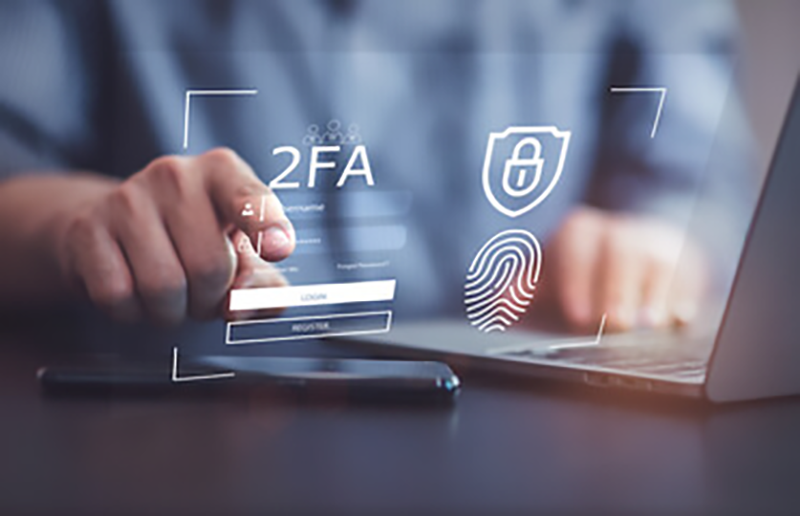Have you ever been caught off guard by a suspicious pop-up or urgent security alert while browsing the web? Nowadays, web scams are becoming increasingly sophisticated, targeting even the most cautious users.
In this episode of The Cybersecurity Insider podcast, Yigal Behar, the host, engages in a revealing conversation with his guest, Freddy, about a recent encounter with web scammers.

Freddy’s Encounter With A Persistent Scam
Freddy shares a troubling experience that started while he was working on his computer. He explains that he was researching an article on a reputable site, New York Times.com when an unexpected pop-up appeared on his screen.
Initially dismissing it as just another advertisement, Freddy tried to close the window. However, it proved to be persistent, repeatedly warning him that his computer was infected and that a severe issue with Windows had been detected.
Yigal shares his screen with the audience showing exactly what happened during his encounter with the scammers. Yigal points out a particular screenshot sent by Freddy: a pop-up with a number to call for help. Freddy explains that the pop-up not only appeared official but also rendered his computer unusable. He was unable to perform his tasks and grew increasingly worried about a hijacking software that could delete his files.
The Screen Takeover
Yigal describes that the screen effectively took over Freddy’s computer. All menus and buttons disappeared, making it impossible to close any windows or even see the mouse cursor. Freddy’s concern was palpable as he recounts how the scammers’ tactics paralyzed his computer, leaving him in a state of distress.
He shares how, despite his mouse being visible on the screen, it was unresponsive. The only action he could take was to scroll down the alarming notice that had taken over his computer. Believing the issue was genuine due to the convincing nature of the message, Freddy decided to call the provided number.
When he called, the person on the other end of the line answered with a voice that sounded official, claiming to be from Windows Security. The caller assured Freddy that they needed to access his screen and computer to diagnose the problem. Freddy describes how the caller seemed legitimate, and he was led to believe that this step was necessary to resolve the supposed security threat.
Freddy admits that the request from the caller seemed somewhat reasonable at first. The idea of someone remotely accessing his computer didn’t strike him as overly suspicious because it is a common practice in legitimate tech support.
Freddy says that he should have been more cautious. He advises against trusting anyone who isn’t personally known or proven to be reliable, especially when it comes to security matters.
Scammer Asks For Added Purchases With Exorbitant Costs
Freddy recounts how the caller directed him to check the logs on his computer. The caller then claimed that his antivirus software was not enabled and blamed Freddy for the issue.
Freddy then describes how the caller began pushing for additional purchases. He insists that Freddy needs to buy a second antivirus protection to resolve the supposed issue, promising that there’s a huge amount of work required. As the caller drones on, Freddy started to feel uneasy about the situation.
The caller eventually discloses that the service would cost several hundred dollars. This exorbitant price triggers Freddy’s alarm bells. Feeling increasingly suspicious, he decides to reach out to Yigal from 2Secure, who is known for his security expertise, for a second opinion.
2Secure Reveals The Scam
When Yigal examined Freddy’s computer, he managed to fix everything within minutes. It turns out the whole situation had been a scam.
Yigal then asks Freddy if he has encountered similar situations before. Freddy admits that he has seen scams like this in the past but usually avoids clicking on suspicious links. This time was different because the scam effectively locked his screen to prevent any action.
Unlike previous annoying pop-ups that could be ignored, this one rendered his computer unusable. Freddy expresses his gratitude for Yigal’s help, seeing how important it is to have someone reliable to turn to in such a situation. “Because not many people are out there who would be so honest and show that it’s a simple fix. A lot of times, they’ll charge you hundreds of dollars and not do anything. That’s why I trust you; that’s why I like working with people I trust.”
Key Takeaways from Freddy’s Experience
Freddy compares his experience to taking a car to a mechanic. If you don’t trust the mechanic, they might tell you that major repairs are needed when nothing is wrong, exploiting your lack of knowledge. Similarly, with computers, if you don’t trust the technician, you might be pressured into unnecessary and expensive fixes.
He maintains how personal and essential computers are to people. They hold valuable memories, important documents, and other sensitive information. This makes the stakes high, which leads to understandable anxiety when facing such issues. Freddy says that now, with the experience he’s gained, he feels more confident in handling such situations himself.
Yigal wraps up the podcast by thanking Freddy for his time and valuable insights. He emphasizes that the information shared will help viewers stay safer online and better handle similar situations.
Freddy finishes with this advice: always call somebody you know and trust, rather than a stranger claiming to be a support technician.
Yigal adds the importance of verifying the legitimacy of any help offered, as scams often disguise themselves as legitimate support services, like Windows Security. If you enjoyed this podcast session, check out The Cybersecurity Insider on YouTube, Apple Podcasts, and Spotify for more expert interviews and insights.






